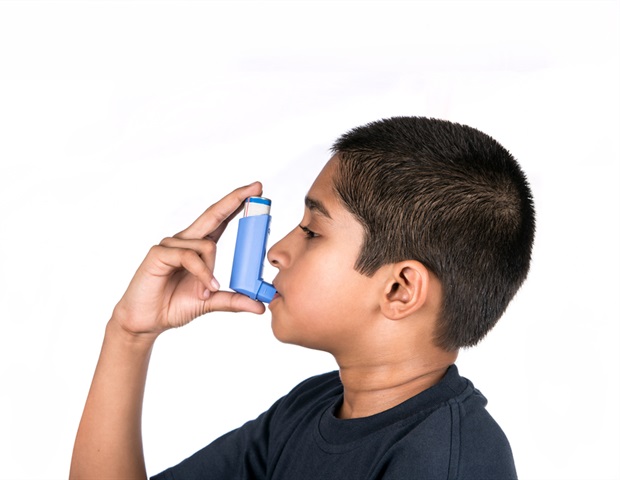With each new generation of air purifiers, brands are upping the ante on dynamic filtration technology aimed at making our homes and offices more breathable. With the onslaught of wildfires in recent years, we’re seeing a new category of air purifiers emerge: smoke-specific models capable of removing particulates caused by fires and other irritants like dust mites from indoor environments.
This is not just to alleviate any immediate concerns about active wildfires causing smoke in your area, but also the long-term health concerns. People who live within 20 to 50 km of a wildfire face an increased risk of certain cancers. This is due to the complex mixture of dangerous particulates and carcinogens.
What is the Danger of Wildfire Smoke?
Wildfire smoke is a dangerous mixture of gases and fine particles. When you breathe in wildfire smoke, these tiny particulates can get lodged deep in your lungs and cause serious health problems. The microscopic structure of these small and ultrafine particles reach past our natural filters in our noses and embed themselves into our lungs and travel to our hearts, resulting in severe breathing and cardiovascular issues.
Wildfire smoke contains carbon monoxide, carbon dioxide, nitrogen dioxide, sulfur dioxide, and other chemicals as well as higher levels of benzene than found in urban areas. It also has high amounts of ash particles that can trigger asthma attacks. It can also cause irritation to the eyes and throat.
Exposure to wildfires increases risk of cancer
That is all in the short term. Studies have shown that individuals who lived in the areas of wildfires within the previous 3, 5, and 10 years often experienced chronic exposure to dangerous particulates. This led to higher rates of brand and lung cancer, as well as three types of blood cancers. Therefore, having a powerful filtration system in your home is critical not just when the fire alarms sound, but for ensuring your home has safe, breathable air for years after a wildfire.
How Does that Affect Health & Safety?
Smoke inhalation is dangerous. It can cause respiratory issues, skin irritation, eye irritation, and headaches. In some cases, it may also cause nausea. Therefore, you should always take precautions to protect yourself from smoke inhalation near a wildfire or other environmental hazard that produces significant amounts of particulate matter.
In the long term, over-exposure to wildfire smoke can lead to increased cancers in the brain, lungs, and blood. An excellent population study in Canada showed that the risk increased based on how close people lived to the wildfire smoke.
While further work is being introduced to understand this phenomenon, the need for whole-home filtration is higher than ever. Global climate change is increasing the rate of wildfires in many areas of the world, and we all need to do what we can to protect our families at home.
In the U.S. alone, 1 in 6 people live in areas with significant exposure to wildfire smoke. McGill University in Canada tracked a period of 20 years to show that this close proximity to firest fires influences cancer risk with as much as a 4.9% increase compared to people living further away. The fact is, this is a concern.
What Qualities should an Air Purifier Have?
HEPA stands for “high-efficiency particulate air,” and it’s the most effective filtering system for in-home air purifiers. These filters are made of extremely fine fibers that can trap up to 99.97 percent of dust, pollen, and other airborne particles as small as 0.3 microns (a human hair is about 60 to 100 microns). This means that every time you breathe through your nose and mouth into a HEPA filter home, you’ll be breathing in clean air—even if there’s smoke or smog outside!
You have to be careful because some companies will use faulty marketing with phrases like “HEPA-like” filters that do not actually remove as many particles as a truly certified HEPA filter would. That is why it is essential to only purchase filters from reliable and trusted brands like ours. We offer the Airpura V600, which is a certified HEPA filter enhanced with 17% potassium iodide to maximize the filtration of carbon monoxide and volatile organic carbon particles.
What Other Ways Can You Protect Your Long-Term Health?
Protecting your home and family in the short term is easy enough. Stay indoors, close your windows and doors, and do not go outside your home filtration system until the danger is over.
However, in the long term, careful consideration of airborne particulates must be considered. That is why you should do things like:
- Make sure your HEPA filter is clean and installed correctly in your air conditioner and other systems.
- Wear an N95 mask if you do have to go outside during or directly after exposure to wildfire smoke.
- Keep a close eye on the local air quality reports to learn if any changes have occurred.
- Use visibility as a guide for nonessential travel.
- Avoid any activities that are outside as much as possible until the danger has passed.
Conclusion
Fire season is an unfortunate reality in many parts of the world. However, if you are affected by wildfire smoke, you can take measures to protect yourself and your family. In addition to using a high-quality air purifier, you should keep windows closed and use a mask rated for PM2.5 when outdoors. If the wildfire smoke is overwhelming, it may be best to stay indoors until the air quality improves.
For the best security of quality air in your home, stick to our professionally designed and manufactured Airpura V700. This will eliminate the majority of fine particles that threaten your health, so you stay protected until the smoke has blown away. It also protects your home from the long-term effects we are now learning about caused by over-exposure to wildfire smoke.















